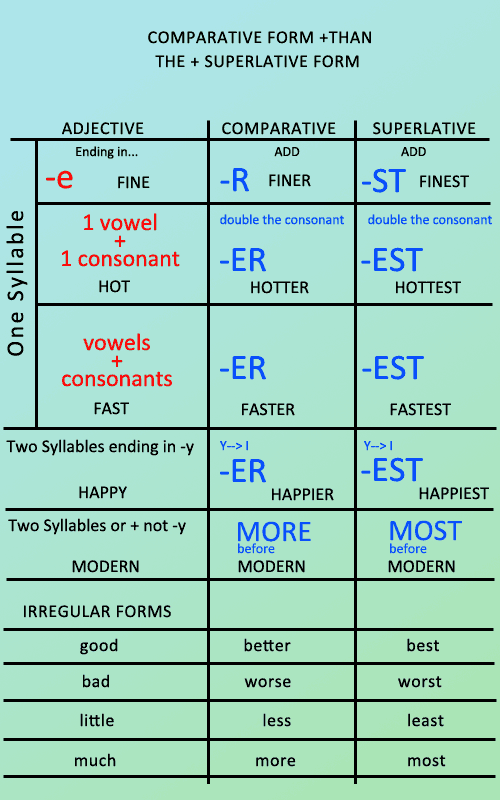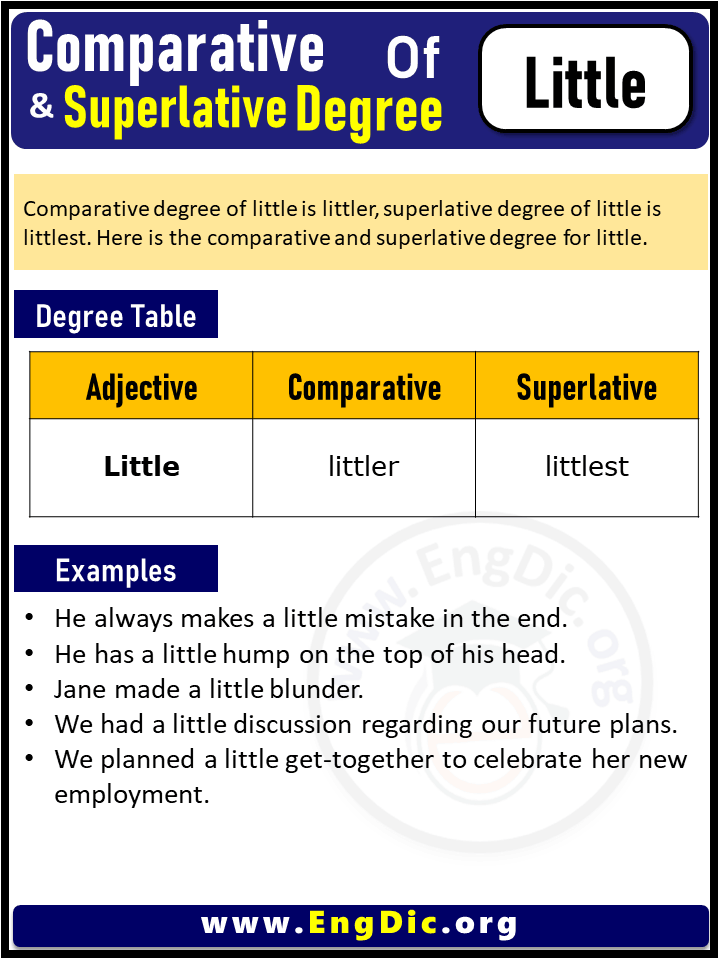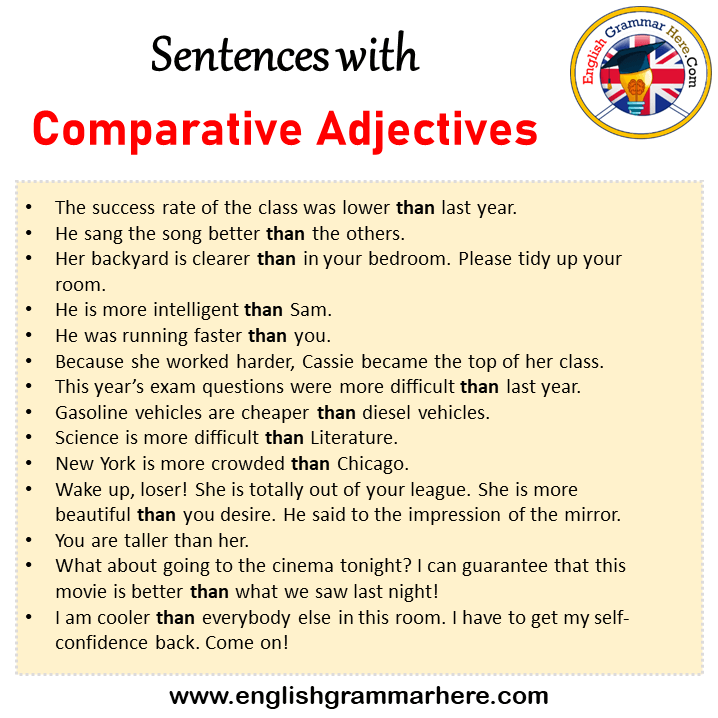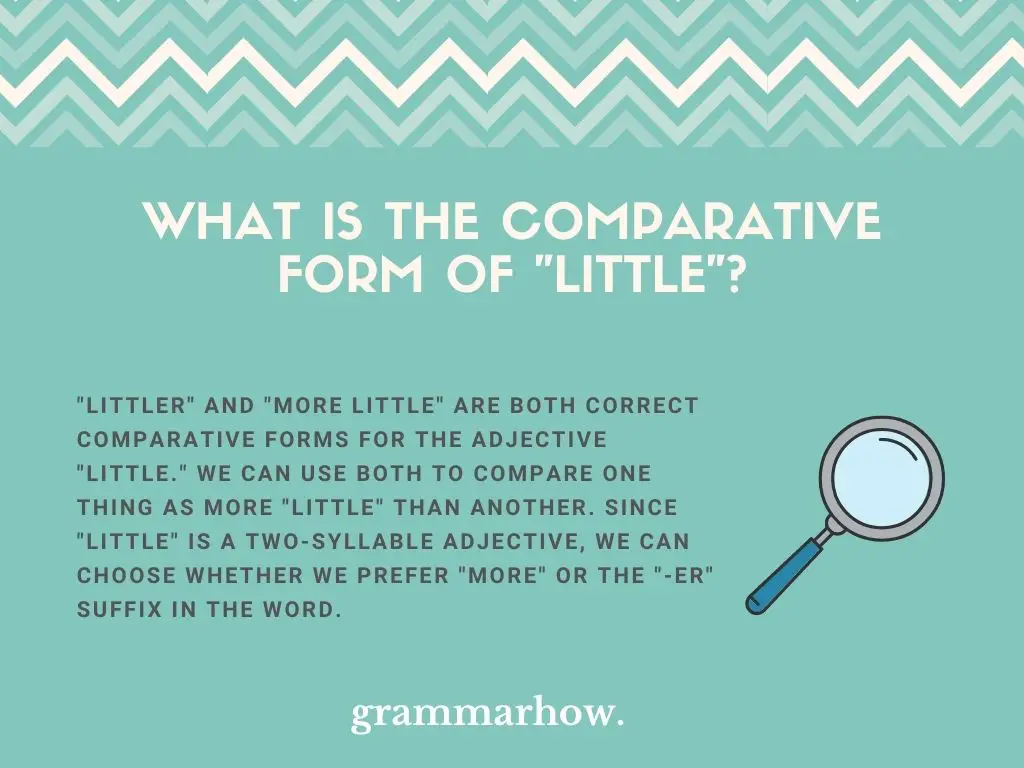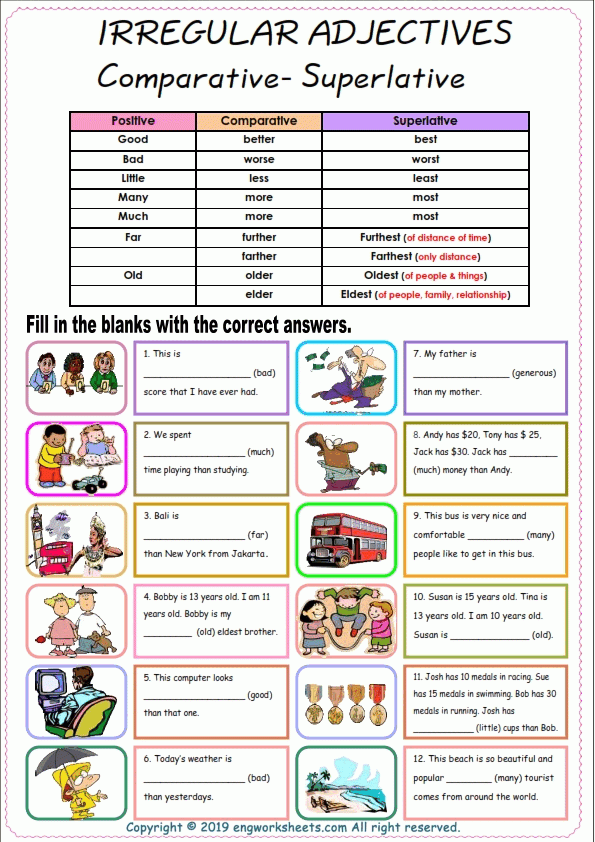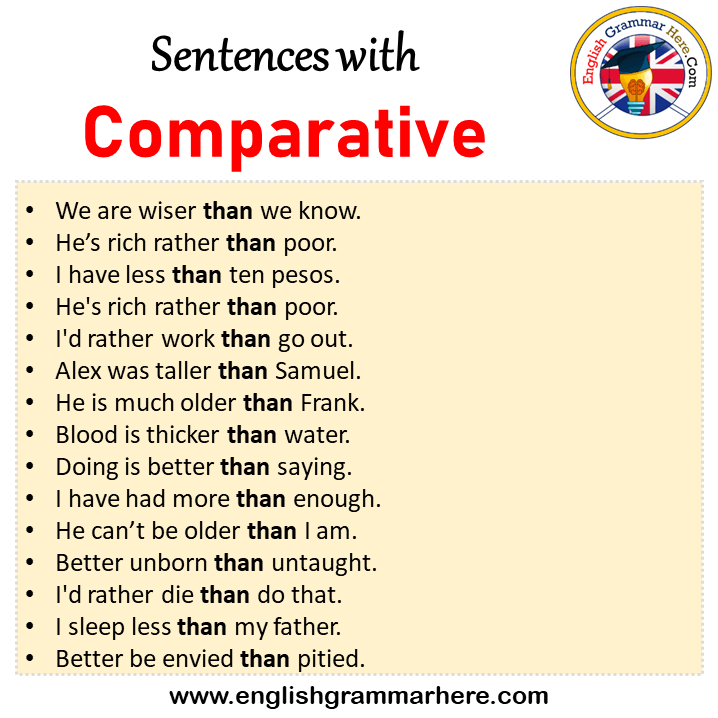Comparative Form For Little - The comparative form is used to compare two people, ideas, or things. The superlative form with the word the is used to compare three or. This car is certainly better, but it's much more expensive. If little means small in size, the comparative is littler or more little, and the superlative is littlest. If about size, there are two options, more formal is that you switch. Less is the comparative form of little. We use comparative adjectives to show change or make comparisons: If 'little' is about number (like amount of money) then it goes: If little means small amount of, the.
If about size, there are two options, more formal is that you switch. Less is the comparative form of little. If little means small in size, the comparative is littler or more little, and the superlative is littlest. This car is certainly better, but it's much more expensive. If 'little' is about number (like amount of money) then it goes: The superlative form with the word the is used to compare three or. We use comparative adjectives to show change or make comparisons: If little means small amount of, the. The comparative form is used to compare two people, ideas, or things.
Less is the comparative form of little. We use comparative adjectives to show change or make comparisons: If little means small in size, the comparative is littler or more little, and the superlative is littlest. If 'little' is about number (like amount of money) then it goes: If about size, there are two options, more formal is that you switch. The comparative form is used to compare two people, ideas, or things. The superlative form with the word the is used to compare three or. If little means small amount of, the. This car is certainly better, but it's much more expensive.
Little English COMPARATIVE AND SUPERLATIVE
The superlative form with the word the is used to compare three or. If little means small amount of, the. If about size, there are two options, more formal is that you switch. This car is certainly better, but it's much more expensive. We use comparative adjectives to show change or make comparisons:
comparative degree of Little Archives EngDic
The superlative form with the word the is used to compare three or. This car is certainly better, but it's much more expensive. We use comparative adjectives to show change or make comparisons: If little means small in size, the comparative is littler or more little, and the superlative is littlest. The comparative form is used to compare two people,.
Sentences with Comparative Adjectives, Comparative Adjectives in a
The superlative form with the word the is used to compare three or. Less is the comparative form of little. The comparative form is used to compare two people, ideas, or things. If little means small amount of, the. We use comparative adjectives to show change or make comparisons:
What Is Comparative Adjectives Images and Photos finder
Less is the comparative form of little. The superlative form with the word the is used to compare three or. If 'little' is about number (like amount of money) then it goes: If about size, there are two options, more formal is that you switch. The comparative form is used to compare two people, ideas, or things.
Comparative Adjectives English ESL worksheets pdf & doc
If about size, there are two options, more formal is that you switch. The superlative form with the word the is used to compare three or. We use comparative adjectives to show change or make comparisons: If little means small in size, the comparative is littler or more little, and the superlative is littlest. If little means small amount of,.
“Little” Comparative and Superlative Forms Explained TrendRadars
If 'little' is about number (like amount of money) then it goes: The superlative form with the word the is used to compare three or. Less is the comparative form of little. This car is certainly better, but it's much more expensive. If little means small in size, the comparative is littler or more little, and the superlative is littlest.
Comparative Adverbs And Adjectives Worksheet
The superlative form with the word the is used to compare three or. If about size, there are two options, more formal is that you switch. This car is certainly better, but it's much more expensive. If 'little' is about number (like amount of money) then it goes: The comparative form is used to compare two people, ideas, or things.
Comparative Adjectives Definition, Rules And Useful Examples 7 E S L
If little means small amount of, the. If about size, there are two options, more formal is that you switch. The superlative form with the word the is used to compare three or. The comparative form is used to compare two people, ideas, or things. We use comparative adjectives to show change or make comparisons:
Sentences with Comparative, Comparative in a Sentence in English
If little means small in size, the comparative is littler or more little, and the superlative is littlest. If about size, there are two options, more formal is that you switch. Less is the comparative form of little. The superlative form with the word the is used to compare three or. If 'little' is about number (like amount of money).
Comparative Adjectives Definition Examples List Comparative Adjectives
The comparative form is used to compare two people, ideas, or things. If little means small amount of, the. The superlative form with the word the is used to compare three or. If little means small in size, the comparative is littler or more little, and the superlative is littlest. If 'little' is about number (like amount of money) then.
If Little Means Small In Size, The Comparative Is Littler Or More Little, And The Superlative Is Littlest.
If little means small amount of, the. If about size, there are two options, more formal is that you switch. The superlative form with the word the is used to compare three or. Less is the comparative form of little.
If 'Little' Is About Number (Like Amount Of Money) Then It Goes:
The comparative form is used to compare two people, ideas, or things. This car is certainly better, but it's much more expensive. We use comparative adjectives to show change or make comparisons:
